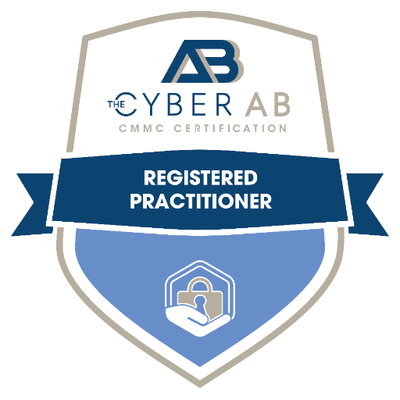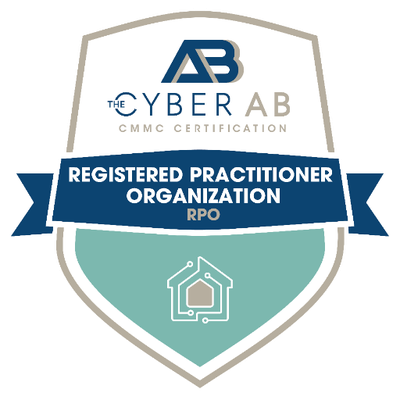How are ISO 27001 audit requirements different from what’s required by the Cybersecurity Maturity Model Certification (CMMC) 2.0? And if your business is compliant with one, does that help you achieve compliance with the other? Here’s what you should know about the differences between ISO 27001 and CMMC audit requirements, how they overlap, and how your business can best prepare for both.
Preparing for CMMC 2.0 Compliance
Amid highly public breaches and a growing willingness among lawmakers to impose new rules to protect data, cybersecurity is top of mind for regulators today. As a result, businesses in many industries need to follow guidelines that seem to grow more stringent each year. And the more sensitive the data they handle, the tougher those rules get — and the greater the likelihood that to stay in business they will need to continually comply or face severe penalties and fines.
For instance, any company already doing business or thinking of doing business in the defense industrial base (DIB) sector must follow Cybersecurity Maturity Model Certification, or what’s commonly known as CMMC 2.0. Rolling out in phases through 2025, CMMC 2.0 provides a single standard for all data associated with the United States Department of Defense (DoD), directly and indirectly.
Onerous as these guidelines are, many companies that need to achieve compliance already have some sort of basic cybersecurity framework in place, which can serve as an important head start. The CMMC itself is based on the earlier NIST SP 800-171 Revision 2, with which many organizations working with the DoD are already familiar.
Yet even these businesses have work to do preparing for new CMMC audit requirements, which impose a new layer of obligation. It all leads to a few increasingly common questions: If my business is already compliant with ISO 27001 requirements, does that mean we’ll pass a CMMC audit, too? What are the differences, and what steps can be taken to ensure compliance with both — and what additional costs will there be?
What’s the Difference between CMMC and ISO 27001 Audit Requirements?
First of all, while CMMC 2.0 is a larger, more encompassing framework than ISO/IEC 27001 requirements, there’s much that they have in common. Both are designed to identify, control, and protect sensitive data and are comprehensive in scope, offering a structured, organization-wide approach to cybersecurity.
The difference is that the ISO 27001 is a more general framework that’s used by the entire international community, while the CMMC focuses on the handling of federal contract information (FCI) and/or controlled unclassified information (CUI) as defined by the U.S. government. So, while companies can usually choose whether and how they follow the ISO 27001 rules, CMMC compliance is mandatory for businesses that have or seek a federal contract.
Sidebar: What are FCI and CUI? While FCI is essentially limited to handling contractual documents, CUI includes a vast range of content containing private or otherwise sensitive data. This can be research, blueprints, engineering plans, as well as the personally identifiable information (PII) of government workers or private citizens.
The CMMC system defines three levels of protecting this data:
- CMMC Level 1 (Foundational) applies to organizations that work with FCI, not CUI.
- CMMC Level 2 (Advanced) applies to those that work with CUI and imposes the same standards as NIST SP 800-171 Rev. 2.
- CMMC Level 3 (Expert) applies to organizations that work with the most sensitive CUI, such as high-grade military tech (think fighter planes and nuclear subs).
It stands to reason that companies working with info that could be a matter of national security are subject to an extraordinarily high level of scrutiny and oversight. Because of this imposed model of risk, though, the CMMC offers little flexibility — businesses simply must follow the obligations laid out in their contracts.
Under the ISO 27001 model, however, organizations conduct their own risk assessments and take the appropriate steps based on their specific needs and operational environment. Because it’s designed to be flexible, adaptable, and more or less universal, ISO 27001 is also the basis for many international standards. As such, it already serves as a cybersecurity foundation for many organizations, which can provide a significant advantage when it’s time to meet CMMC audit requirements.
Can CMMC and ISO 27001 Compliance Work Together?
So, if you’ve already implemented ISO 27001, how does that set you up for passing a CMMC audit? In other words, can you avoid the cost of implementing an all-new framework by building CMMC compliance into your existing ISO 27001 information security management system (ISMS)?
The short answer is yes — but with a very important caveat. The ISO 27001 is designed to serve as a universal foundation for modern cybersecurity, NIST and CMMC included. And there’s already extensive documentation for mapping the NIST cybersecurity standards outlined in CMMC 2.0 to ISO 27001. That makes it not just convenient for companies that have an existing ISMS to build upon that foundation to prepare for CMMC audits, but cost-effective, too.
However, those businesses should also note that CMMC audits are more demanding, including some very specific requirements that don’t apply to ISO 27001 audits — specifically, criteria around CUI, as noted above. The need to secure this info can affect more parts of their operation than leaders may suspect. The upshot is that businesses need expertise to understand their best course of action.
Achieve CMMC Compliance with Omnistruct
With or without ISO 27001 in place, companies subject to CMMC audits must take a proactive approach. If you want to keep your contracts, stay ahead of the risk of revenue loss, efficiency gains, and foolproof your organization, it’s time to start taking action. The countdown to CMMC 2.0 is already moving. Many will be too late to be ready, but you don’t have to be. To speed the process, avoid pitfalls, and create cross-mapping of controls, Omnistruct can help.
At Omnistruct, we specialize in providing that expertise, and much more. Schedule a consultation today to learn more about what we can do to help you meet today’s cybersecurity needs — and prepare your organization for what comes next.




